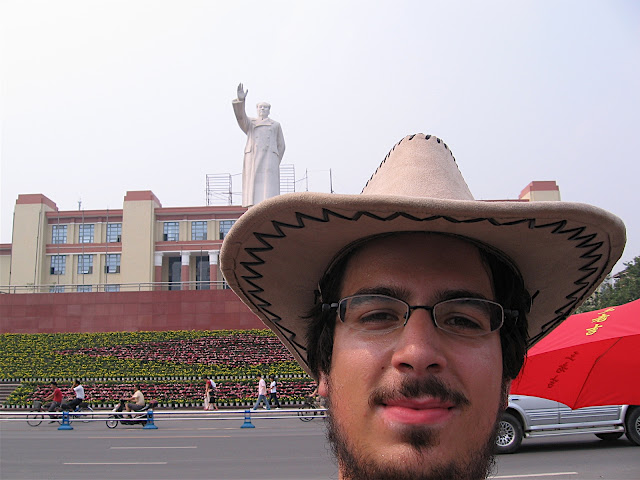Those who try to explain the current fighting in terms of tribal differences, between the Tutsi-associated Banyamulenge of eastern Congo and some Hutu-linked groups, are missing the point. Yes, the spillover from the Rwandan genocide of 1994 affected this region. But, in a state as failed as the Congo, relatively small tribal frictions can be turned into a national crises. And the current crisis needs to be understood, as it was in King Leopold's day, as a battle over Congo's rich natural resources.Relatively small tribal friction? This guy claims to have traveled in DR Congo but he certainly does not seems to appreciate the importance of recent history. So I'll explain it here briefly. 800 000 ethnic Tutsi were massacred in a few months in neighboring Rwanda, the Hutu militias migrated to DR Congo where they continued killing Tutsi and remain there to this day. The current "rebel" is one of those Tutsi. Yet we are to believe that this was just small friction, you know, nearly a million massacred, thousands of rapes in the genocide and then four to five times that number in the Second Congolese War just seems to be so close to normality for Mr. Butcher (very appropriate name), that the idea that this might matter to these people is totally ridiculous to him. The fact that the Congolese government was selling weapons to the Hutu militias that committed the genocide and that still claims to want to eliminate all Tutsis and invade Rwanda does not even enter the picture for Butcher.
The battle over resources is an important aspect of the conflicts in DR Congo. It certainly changes the dynamic of the country. But to paint a ridiculously simplified picture where this is the only aspect that matter is stupid. The main reason that explains the conflict that has started since August is simple; Nkunda signed the Nairobi Agreement in August 2007 with the government where they promised to disarm the Hutu militias within a year. In August 2008, they had done absolutely nothing to disarm them, in fact they were arming them. So Nkunda started the current conflict, to increase his influence in the region and reduce the Hutu militias and the government's influence. Resources are one part of the equation for sure, because they can give money and weapons, but they are fighting primarily because of the lessons everyone in the region learned in 1994 and during the Congolese Wars: the international community will never actually be able to help if there is serious trouble, if you want to survive and see your "tribe" survive, you'll have to ensure that you can defend yourself all alone.
There are several examples of conflict in Africa in regions with no important resources that lasted for decades, such as South Sudan, Northern Uganda, Eritrea and Somalia (in fact, South Sudan's conflict ended after the oil started being exploited). And there are many resource rich countries in Africa that have never had major civil war, such as Botswana, Gabon and South Africa. Resource rich countries can be peaceful and resource poor countries can suffer decades long civil wars, so the underlying dynamic is much more complex than the cartoon version of African politics that Mr Butcher wants you to believe. But then again, complexity is never welcome by those that want easy explanation, especially when those explanations allow you to blame the "evil" Chinese or your fellow westerners who caused the conflict by buying a cellphone that had a 1% chance of containing Congolese coltan.




No comments:
Post a Comment